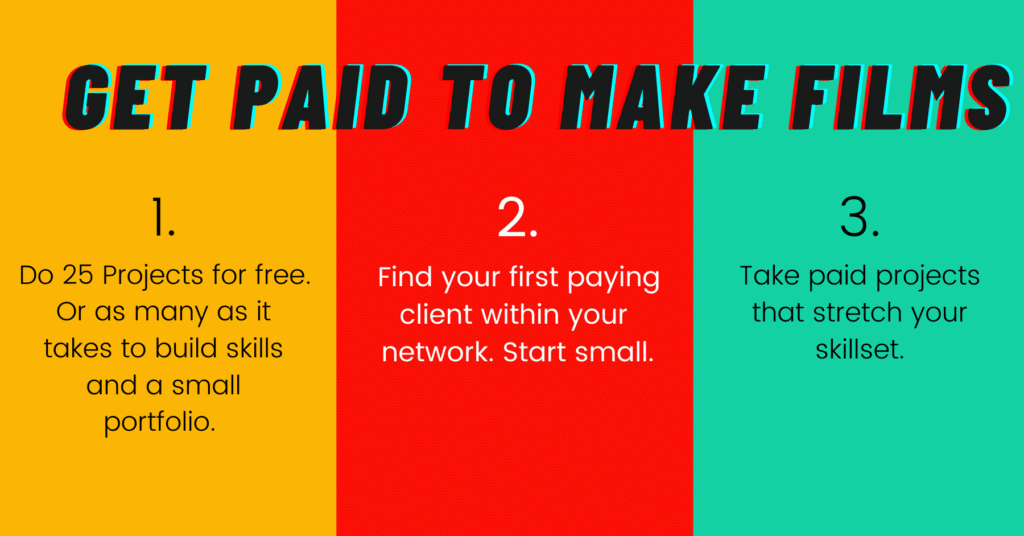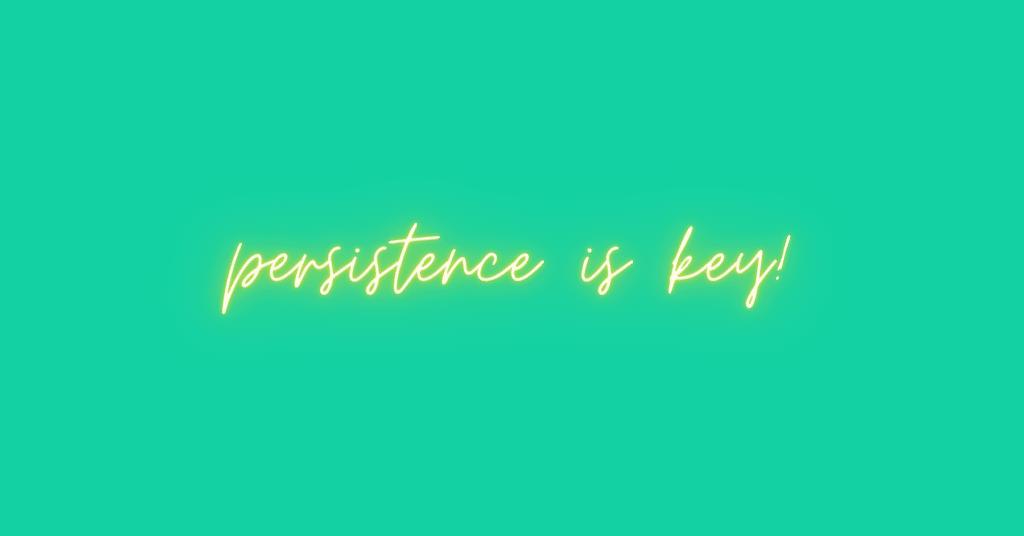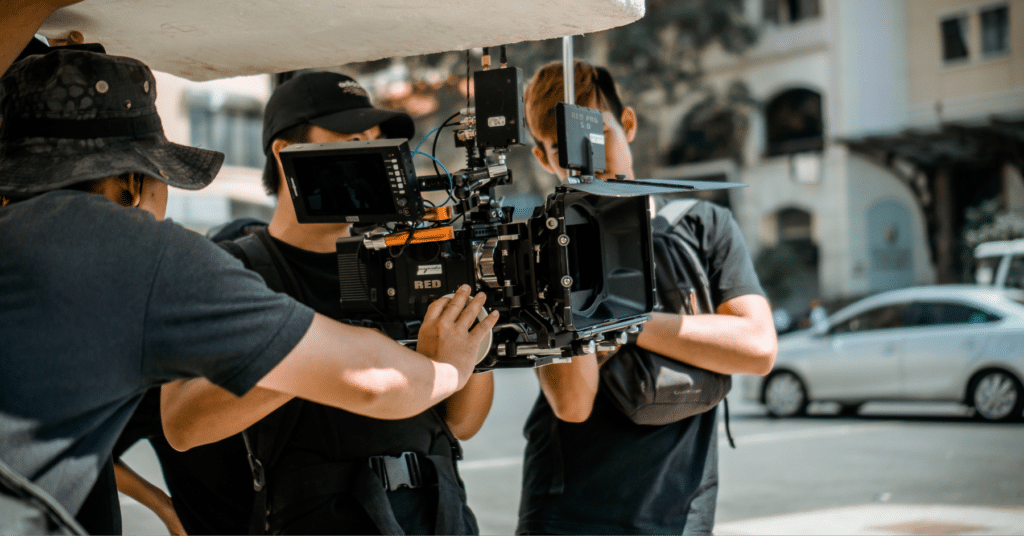Article by Colette Nichol, Solo Filmmaker and Story Strategist
Estimated reading time: 14 minutes
Anyone with persistence and passion can make money filmmaking. It’s not true that there’s no money in the arts. As long as you have good skills and a good strategy, you can make money filmmaking.

You can learn and make money filmmaking…at the same time. I did it, and so can you.
Ready to Make Money Filmmaking?
Great!
Because the biggest mistake new filmmakers or aspiring filmmakers make is thinking that if you’re in the arts you can’t earn a good income. It’s simply not true. Many people don’t even get started with filmmaking because they’re worried about the money.
But you can make money as a filmmaker while you’re continuing to grow and improve your craft.
This blog post isn’t about how to get grant funding or a distribution deal. It’s about how to make money with your filmmaking skills from practically day one. If you do this you gain freedom. You’re not reliant on a regular job for your income. And you’re not reliant on a crew in order to get a project started.
But first, a story…
Topics Covered In This Article:
1 My Story About Story..and How It All Started
2 How to Make Money Filmmaking in 3 Simple Steps
3 Learn Filmmaking without Debt
4 How Do Beginner Filmmakers Make Money?
5 How Much Money Can You Make as a Filmmaker?
6 How Can I Make Money Filming?

My Story About Story…And How It All Started
It’s 7:30 in the morning, on a dull rainy day, and my students are bored out of their skulls.
They all look about two minutes away from falling asleep. It’s one of those cold rainy days near the end of term when my students have given up on learning English and just want the class to be over.
I’m teaching a group of young professionals who get up at 5 am every day to go to an English class before heading off to their corporate jobs in the capital of Ecuador.
At this moment, on this grey day, I had a choice: keep talking about grammar or try something different.
They were depressed because I’d just given them a listening activity that was so hard they’d all failed. It was time for a pep talk. I started telling a story about a former student who had gone from being at the bottom of his class to the very top by listening to American talk radio.
As I started telling this story, my students’ faces began to change.

Their drooping expressions lifted, their dull eyes brightened and their posture changed. I watched them come back to life like house plants that had just needed a splash of water.
That’s when it hit me: storytelling is your purpose.
The words flashed in my mind. Neon, capital letters: TELL STORIES. Three years later, I bought a DSLR camera, and I started teaching myself filmmaking. I wanted to tell stories with moving images.
But when I first started out, I had no strategy. All I wanted was to learn.

What happened next was incredible: I got paid to learn filmmaking. I started to make money filmmaking, well before I was a seasoned pro.
So how did I do it?
It was a deceptively, simple three-step process. You could apply the same steps to learning any new skill.
How to Make Money Filmmaking in 3 Simple Steps
- Do 25 projects for free.
- Find your first paying client and start small.
- Take paid projects that stretch your skillset.
So let’s go over these three steps!

1. Learn filmmaking by doing your first 25 projects for free
The key to this step being successful is that you start and finish mini-projects.
Just shooting a bunch of footage that you never do anything with won’t get you anywhere. There will be no context to determine if your footage was successful or not. Sure, you can practice getting exposure and focus right. You can even practice framing. But filmmaking is all about telling a story.
The toughest part of the craft is capturing the images that actually tell the story the way you want them to.
List out as many project ideas as you can. Then start making them. Projects can be short and simple.
When I was starting out, I did projects that varied from a Sock Puppet Christmas Music Video to my mother baking bread and my father playing the double bass. This was not high art. It was simple, basic, get-it-done storytelling.

Once you’ve finished 25 projects, you’re ready for your first small paid gig.
But wait, why 25 projects? Honestly, when I came up with that number is was completely arbitrary. I figured 25 projects would get my skills to a place where I would be confident working with a client. And I wasn’t wrong.
2. Find your first paying client and start small
Within a year of buying my first DSLR camera, I had a paying client.
Don’t get me wrong, this project was a small, low-budget affair. I charged $500 for two sales videos. While I look at those videos now and cringe, they did what the client wanted. They captured her essence in a way that communicated the value of what she was offering.
After reaching the magic number 25, I built a website to share my services.
I put up a portfolio of my best work. (Not all 25 videos, that’s for sure!) Then I sent out individual emails to every person I knew who I thought might want a video for their business at some point in the coming 12 months. No, not mass emails. That’s no way to get a client out of thin air.
I also added a subscription gift to my website and started collecting emails. I sent out video marketing and DIY video tips every month.
From there, my clients all came relatively by accident.
As an introvert who hates chit chat, I avoided networking and just did online marketing. From those efforts and some other strange accidents, I kept getting clients. I also created an account on UpWork.com and got editing clients through that platform.
Each job turned out to be more complicated than the one before. And though I was often terrified, I kept saying yes.

3. Take paid projects that stretch your skillset
The only way to keep improving your filmmaking skills is to continuously set the bar higher and higher.
You do this by taking on projects that require skills you don’t yet possess. I’m not suggesting you just say yes without a thought. Make sure you can learn the skill set in the time required. Then say yes. Through this process, I learned how to do stop motion filmmaking, product videos, high key lighting, text animation, voice-overs, and how to use a gimbal.
Before I signed the contract on any new job that stretched my skill set, I would run a test of the new skill.
I’d see what results I could get with my current technology and without doing any research. If I could get halfway there, I knew that with research and the right technology or tools, I could deliver the results the clients were looking for.
RELATED POST: How to Make Money Filmmaking (Even If You’re Just Getting Started)

Didn’t the clients care that you were still learning filmmaking?
Not a single client has ever brought up my filmmaking education or asked about my experience level.
The proof is in the portfolio and whether you incite trust. The beauty of digital marketing is that you can tell your story on your website and filter out most pain-in-the-butt clients. My website’s About Page has always clearly (and proudly) stated that I’m a self-taught filmmaker and video producer. My background is in the theatre, which is why I’m obsessed with storytelling, lighting, set design, and efficient production standards. That, along with a good portfolio and testimonials, is all your clients need to see.
In fact, because hiring a video production company is typically so expensive, clients usually feel lucky to have found someone who is good, who cares about the project, and who will do it for a price they can afford.
A typical story-based brand video costs $10,000.
But the vast majority of small businesses do not have a marketing budget that allows them to invest that sum. So they’re either stuck doing it DIY or not doing it at all.
Until they find you.

Learn Filmmaking without Debt
The best way to learn filmmaking without going into debt is to earn the income you need to keep investing in gear by working with paid clients.
First, do 25 gigs for free, so you can get your skills to a basic working level. Then find your first small paid job. From there, you can continue to increase your rates as your skill level increases.
Keep your day job and continue to invest your filmmaking income into gear and online filmmaking courses until you’re ready to go full-time.
Finally, don’t be afraid of gigs that stretch your skill level by about 10%. Figure out whether you think you can deliver by running a basic test. Then go ahead and say yes to the project.
Just Tell Stories
The typical film student pays $25,000 to $50,000 to get their filmmaking education.
They learn how to make movies in teams. They build industry connections. Then they go to work as Production Assistants on big movie sets. They move their way up through the ranks.
You could do that. Lots of people do.

Or you could get paid to learn filmmaking on the job by practicing and stretching your skillset.
You won’t go into debt. And you’ll end up with all the gear you need to tell any online story you want.
Storytelling is an art that you learn by doing. Not by watching. Sure, you can pull scripts apart. You can analyze videos and films. But you get better by doing it.
Only you know what route will work best for you.

How Do Beginner Filmmakers Make Money?
Just like I reviewed in this article, you start small.
If you’re a total beginner then you do need to gain a skillset. You can’t make money as a filmmaker if you don’t know the basics of videography or cinematography. You need to know the basics of how to film, shoot sequences, put together a shot list, get correct exposure, and do some basic audio and video lighting.
You’ve got to know the basics.
But as soon as you reach that pre-intermediate level of filmmaking skills, you can get clients who will pay from $500 to $2000 for a project.
From there it’s all about doing a great job, building a portfolio and then starting to work with clients who have bigger budgets.
To get clients who want higher-end films or video projects, you need to have a very good portfolio.
But you don’t usually start there. You start with something small and low-risk. You start with a low-buget. And you over-deliver on quality. Then you keep doing that. It won’t take you long to go from $500 to $5000 per project. Then you’ll take that to $10,000 per project. And later you can bring that up to $25,000 to $50,000 per project.
This is a fairly common path for solo filmmakers and small crew-based producers.
But you don’t want that higher-budget project until you’re good at producing. And you get good at producing by making work. That’s been my experience, and I’ve seen and heard the same story from other professionals.

How much money can you make as a filmmaker?
There’s no limit to how much a filmmaker can make if they are also the one producing and distributing the film.
If you’re going to call yourself a filmmaker rather than a director or a writer or a cinematographer, I would expect that you are also a producer. So whether your goal is to make $50,000 wedding films or release a documentary to a niche audience and gross a few million, you can decide your salary based on a sold strategy and skillset.
If you don’t want to go the independent route and want to be hired to make films, then you’ll make closer to $50,000 or so per year.
As an independent filmmaker and business owner, you can make a lot more than that. But it’s up to you. Not everybody wants to run a business or be an independent filmmaker who self distributes.
No matter what, you’ve got to prioritize your skillset alongside your strategy. Be a filmmaker who has great skills and a good strategy, and you’ll find your place in this space.
How Can I Make Money Filming?
If the main thing you want to do is film i.e. operate a camera, create shot sequences, and put together beautiful shots, then shooting stock footage is probably your best option.
You can make from a few hundred per month up to hundreds of thousands per year as a stock footage filmmaker. The demand for stock video footage that is cinematic is only going to increase in demand. As a video editor who has used stock before, I can tell you that much of what’s available isn’t great.
So if you were to dedicate a couple of years to really getting to know the stock industry and creating outstanding stock footage, you could make great money filming.
Of course, you also have to edit and upload and tag all your footage. But like any business, there are boring elements. There’s not a single path in filmmaking that I’m aware of which doesn’t have some quantity of required mundane activities. If you discover a path that’s pure sunshine and unicorns with no downsides at all, please let me know!
Of course, if all you want to do is film, then you could also become a cinematographer. This means you’ll have to be great a either building relationships or be a visionary. This can be a tough route, but if you’re up for the challenge, go for it!
Why is it tough? Because it’s competitive, doesn’t pay that well, and to breakthrough, you need to be amazing at building relationships. That said, as we move into an industry that makes more projects for a lower budget it’s likely that there will be more rather than less cinematography jobs. But again, many of them won’t pay well.
That’s why you want to develop your creativity and become a visionary rather than a camera operator for hire.
It’s the people with a unique creative vision who make the command the top salaries.
Learn Filmmaking and Get the Gear Guide
If you’re interested in learning filmmaking, check out the Solo Filmmaking Mentorship Program I created for aspiring filmmakers and video creators. It usually goes live once per year. So I recommend getting the Story Envelope Filmmaking letter which comes out a couple of times per month. That way, you can get filmmaking tips for free and find out when the filmmaking course is going live again.
Also, before you go, grab the Solo Filmmaking Gear Guide and Checklist for Beginners.

About the Author
Hi! I’m Colette Nichol. I’m a solo filmmaker and story strategist based out of rainy Vancouver, Canada. I’ve been making videos and micro films for small businesses and global brands since 2014.
Plus, I LOVE to help aspiring filmmakers pursue their dreams and start making films. This blog is designed to help you gain the knowledge you need to become a filmmaker.
If you want more, get on the waitlist for the Story Envelope Academy Solo Filmmaking Mentorship Program. It opens up one time per year and is the best way to become a filmmaking or video pro fast!
CLICK HERE to get on the solo filmmaking mentorship waitlist.